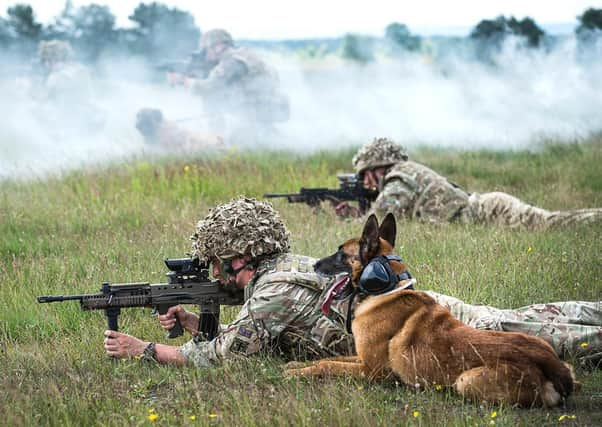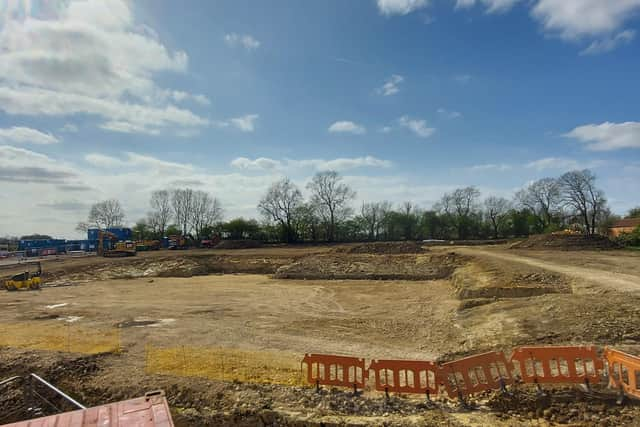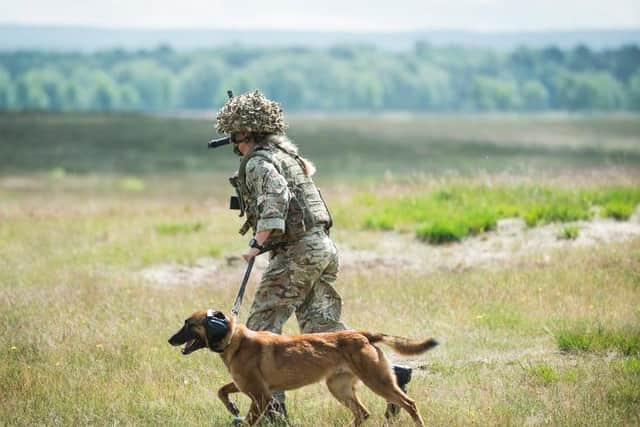Work starts to convert Melton army base into carbon neutral facility


The venue, off Asfordby Road, will become 96 per cent self-sustaining when the works are completed in October.
The new facility will replace the portacabins currently housing the squadron’s HQ staff and the 1940s’ timber-framed buildings which are used to train the military working dogs and their handlers.
Advertisement
Hide AdAdvertisement
Hide AdThe Commanding Officer of the Defence Animal Training Regiment, Lt Col Martyn Thompson, said: “The planning, design and sustainability of this project will generate much needed efficiencies in our training delivery.


“This will ensure that the DATR continues to provide defence with a proven capability which helps to protect our people, territories, values and interests at home and overseas.”
Sustainable insulation will be used in the walls and roof and ‘air-lock’ doors will also prevent heat from escaping.
Cost-saving and ecological features included in the new build include six solar panels and a battery storage facility that will generate the building’s own electricity needs.
Advertisement
Hide AdAdvertisement
Hide AdIntelligent heating controls will warm the training facility and offices using air source heat pumps.


The renewable energy technology also includes a heat recovery system in the plant room and network room.
Both rooms produce a huge amount of heat which will be drawn out via a ventilation duct.
The heat will be filtered before being ducted to heat the offices and training facilities.
Advertisement
Hide AdAdvertisement
Hide AdA rainwater recycling system will collect, save and reuse water to meet the various sanitary and non-drinking requirements which aims to reduce the use of the mains water supply by up to 60 per cent.
Rainwater will also be used for the soldiers’ boot cleaning and the bike racks will be built to encourage staff to cycle to work.
The new ecological facility is aimed at helping achieve the army’s commitment to significantly reducing net carbon emissions by 2050.
The Melton project will be delivered by Amey Defence Ltd,, on behalf of the Defence Infrastructure Organisation, and the cost savings will be invested into army infrastructure.
Advertisement
Hide AdAdvertisement
Hide AdThe building internal construction is of such a design that once its use is over in its current capability, the internal walls can be changed and the building can be re-purposed for a new use without the need for re-building.
This future-proofing will reduce the CO2 required to demolish this and construct a new facility if and when required.
The Canine Training Squadron benefitting from the new build is the largest Squadron within DATR.
Home to around 200 working dogs at any one time, it employs 50 army personnel and 20 RAF Police personnel, supported by a team of civilians.
Together they train the highly-skilled military dogs and their handlers for a variety of roles ranging from operations in the UK to deployment
overseas.